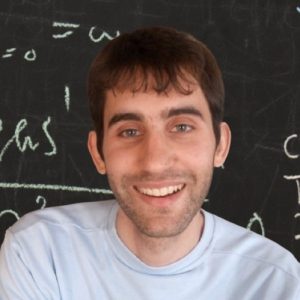Although initially I graduated and pursued a Master's degree in Pure Mathematics, I managed to find my aspirations and goals in the field of Applied Mathematics, where I earned a doctorate specializing in Astrodynamics, Astrophysics, and Modeling. This, in turn, opened the doors for me to the technological realm, where I took several courses in Programming. Combined with my prior knowledge of specialized software for mathematical algorithms, this allowed me to gain a more technical understanding that is highly applicable to real-life problems. Subsequently, I decided to pursue a Master's in Industrial Mathematics (M2i) with the objective of seeking a synthesis between my mathematical and physical background, numerical simulation applied to the industry, and problem-solving through Information Technologies.
My goal is to professionally establish myself as an experienced asset in both the Technical and Scientific sectors, and to contribute to both fields as much as possible by proposing solutions and providing versatility and expertise from various areas. I believe I am qualified for this due to years of continuous learning and constant challenges.
- I + D Researcher (February - June 2023). Marine Instruments, Galicia (Spain)
- Master's degree in Industrial Mathematics (2021-2023). University of Santiago de Compostela, Galicia (Spain)
- Phd in Applied Mathematics(2016-2021). University of Santiago de Compostela, Galicia (Spain)
- Master's degree in Pure Mathematics (2015-2016). University of Santiago de Compostela, Galicia (Spain),
- Bachelor degree in Mathematics (2010 - 2015). University of Santiago de Compostela, Galicia (Spain)
Master Final project: Estudios estadísticos de parámetros de calibrado de boyas M3iGo por Marine Instruments, S.A. (2023).
The thesis involves studying the discrepancy between the experimental data obtained from the calibration process of the M3iGO buoys, developed by Marine Instruments, and the expected data, based on historical calibration data.
PhD Thesis: Detección, dinámica y habitabilidad de exoplaneta y exosatélites(May 14, 2021)
In this thesis, I conduct an in-depth study on the so-called exoplanets, that is, planets outside the Solar System, and the satellites orbiting around them, or exosatellites. In Chapter 1, we describe the main methods for detecting exoplanets and, in the case of exosatellites, we present some proposed methods for their potential detection, as none have been discovered yet. In Chapter 2, we outline the process for determining whether an exoplanet or exosatellite has been detected, applying the developed theory to several examples. Chapter 3 deals with the dynamics and stability of orbits of exoplanets and exosatellites in various scenarios, such as binary systems, triple star systems, etc. Finally, Chapter 4 is dedicated to the habitability of both exoplanets and exosatellites, proposing techniques for a future, when technology has sufficiently advanced, to analyze in much greater depth whether an exoplanet/exosatellite is habitable.
Previous publications
-Monzón, C. V., & Docobo, J. A. (2023). Long-term perturbations in four-body systems with mutual highly inclined orbits. Astrophysics and Space Science, 368(5), 42.
DeustoCCM Seminar: TBA.

